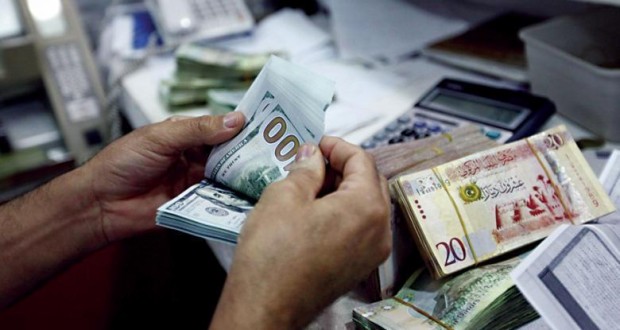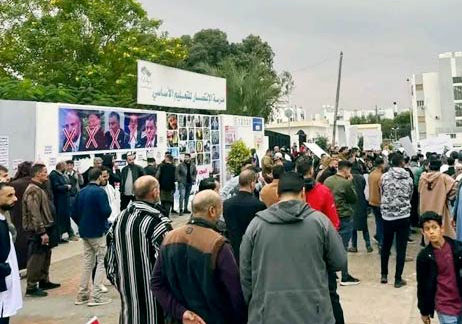CBL tackles black market but its previous policy is criticised
Published on 2025 July 28, Monday Back to articles
The Central Bank of Libya (CBL) has squarely blamed the ‘overgrowth’ of the currency black market on the weakness and absence of security agencies. It asserted that ‘millions in cash are transported in wheelbarrows driven by expatriate workers before the eyes of security agencies with unjustified currency speculation driven solely by greed.’ It urged the Government of National Unity (GNU) and its ministries to ‘bear responsibility for these crimes committed openly in broad daylight and money laundering operations that have tarnished Libya’s reputation,’ leading to international sanctions and its classification as a high-risk country. The bank explicitly called on the security agencies to ‘raid these dens that have harmed the economy and the value of the Dinar.’
In an effort to regulate the informal sector, the CBL said that it would grant licenses to companies and offices wishing to formalise their operations within the bank’s established controls and support framework. It launched a one week pilot phase, starting on 1 August, for a new online platform for companies seeking foreign currency. Companies will need their unique banking code (a.k.a. CBL key) and International Bank Account Number (IBAN) to use the platform in coordination between the CBL key system and the Foreign Currency Management System (FCMS).
Despite the bank’s current efforts, economic experts are casting a critical eye on the bank’s previous decisions. They argued that the devaluation of the Libyan Dinar was not driven by genuine external pressure but by ’mistaken estimates and a defensive behaviour’ from the monetary authorities under the pretext of protecting foreign currency reserves. Experts contend that ‘the currency reserve was not in danger’ and was instead ‘depleted under the illusion of danger.’
They stress that maintaining the foreign currency reserves ‘should not be based on exaggeration but rather on the principle of immunisation… which prevents currency leakage through speculative and corrupt channels and directs its use towards supporting real and sustainable economic activity.’ Prominent economist Mohamed al-Shahati questions the actual need for the Dinar’s devaluation. He argues that the trade gap and the difference between the official and parallel markets was insufficient to justify a 240% devaluation in 2021.
Al-Shahati challenges the notion that the CBL was forced to draw down forex reserves because of the collapse of the oil price and repeated shutdowns. His analysis reveals a different story: ‘the actual withdrawal from reserves began in 2013, before the major oil shutdowns and before the collapse in oil prices.’ Between 2013 and 2016 the country’s forex reserves plummeted from US$106 billion to US$70 billion but the current account deficit during the same period did not exceed US$18 billion, so half of the withdrawals were not justified by the actual external deficit.
Experts attribute this phenomenon to a behavioural response from a stressed institution to a wave of collective anxiety, political pressure, and market speculation. This institutional panic opened the door for speculative forces to impose their logic on the bank, exploiting what appeared to be a weakness in reading the economy’s fundamental data.
This excerpt is taken from our Libya Politics & Security weekly intelligence report. Click here to receive a free sample copy. Contact info@menas.co.uk for subscription details.


